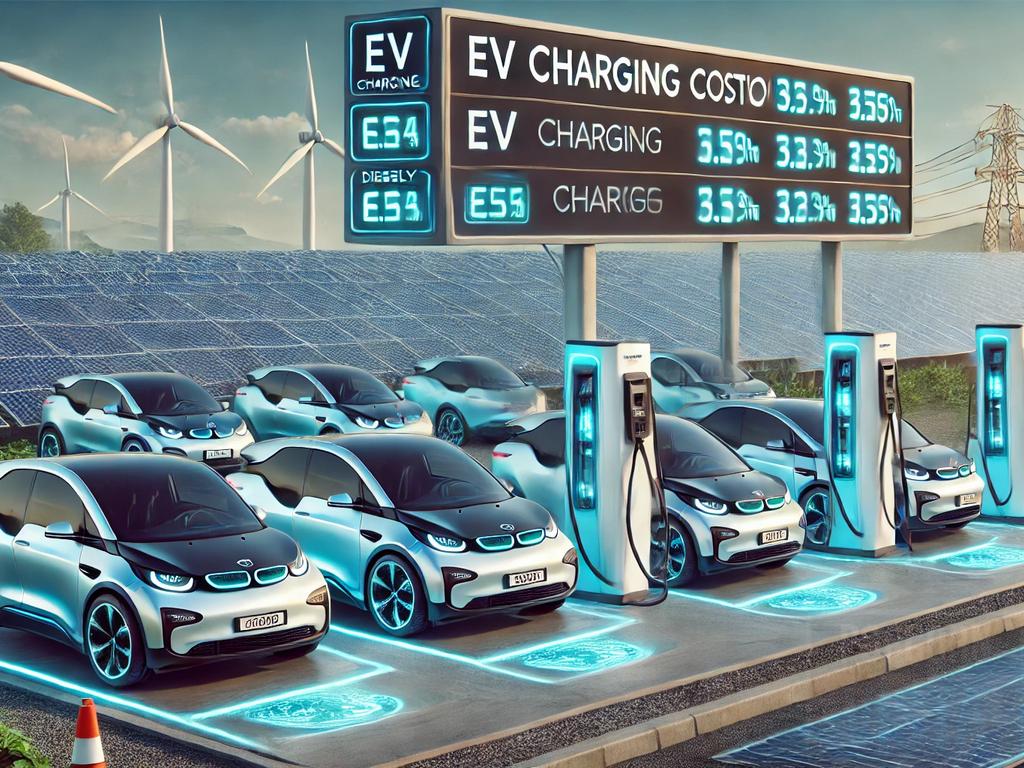The global shift to electric vehicles (EVs) is accelerating, and one of the most compelling reasons to make the switch is the cost of charging. While fuel prices continue to rise, EV charging costs vary significantly across different countries. You might switch to an EV after seeing charging cost. In some regions, EV owners enjoy incredibly low costs, while in others, electricity rates are on par with traditional fuel expenses. Let’s explore EV charging prices worldwide and see why switching to an EV could be a game-changer for your wallet.
EV Charging Costs Across the Globe
EV charging costs depend on various factors, including electricity rates, government subsidies, infrastructure, and charging speeds. Here’s a breakdown of charging costs in different parts of the world:
Europe: A Mixed Bag of Prices
Europe has one of the most advanced EV charging networks, but prices vary greatly from country to country.
- Iceland – One of the cheapest places for EV charging, with costs around €2.89 per 100 km.
- Portugal – Another affordable option, where charging costs about €3.18 per 100 km.
- Finland – Slightly higher at €4.63 per 100 km, but still cost-effective.
- Germany – Public charging rates are around €8.93 per 100 km.
- United Kingdom – Public charging stations charge £0.80 per kWh, making it one of the most expensive places to charge an EV.
- Norway – The most expensive in Europe, with costs reaching €18.93 per 100 km.
Australia: Rising EV Charging Costs
EV adoption in Australia is increasing, but charging prices have surged.
- Public fast charging costs have risen by 80% in five years, reaching $0.63 per kWh during peak hours.
Netherlands: A Well-Structured Network
- Public charging costs €0.40 per kWh at AC charging points. The country has a vast network of EV stations, making it easy for owners to find affordable options.
United States: Varying Costs by State
EV charging prices in the U.S. differ by location and provider.
- Costs range from $0.28 to $0.69 per kWh at public stations.
- Some states offer free charging at select locations, while others impose higher rates based on electricity demand.
India: One of the Cheapest Places to Charge an EV
India’s low electricity rates make EV charging highly affordable.
- Costs range from ₹6 to ₹10 per kWh, significantly lower than fuel prices.
Factors Affecting EV Charging Costs
Several factors contribute to the variation in EV charging prices:
1. Energy Production
Countries that rely on renewable energy sources, such as hydropower and solar, tend to have lower electricity costs. In contrast, regions that depend on fossil fuels for electricity may see higher EV charging rates.
2. Government Policies and Incentives
Subsidies, tax rebates, and government regulations impact charging costs. Many countries offer financial incentives to encourage EV adoption, reducing charging expenses for owners.
3. Infrastructure and Availability
Countries with well-developed charging networks typically offer lower rates due to increased competition among providers. In areas with limited charging stations, prices tend to be higher.
4. Charging Speed and Type
- Home Charging (Level 1 & 2) is the most affordable option, as it uses standard electricity rates.
- Fast Charging (DC Level 3) costs more due to the higher energy demand and operational expenses of maintaining high-speed chargers.
Why You Should Consider Transitioning to an EV
With fuel prices continuing to rise, EV charging remains a cost-effective alternative in many countries. If you live in a region with low electricity rates, making the switch to an EV could save you thousands over the years. Additionally, as battery technology improves and renewable energy adoption increases, EV charging costs are expected to decrease further.
Final Thoughts: Is It Time to Go Electric?
The cost of EV charging around the world highlights the economic benefits of transitioning from petrol and diesel vehicles. While prices vary, many regions offer cheaper and more sustainable charging solutions than traditional fuel options. If saving money while reducing your carbon footprint sounds appealing, now might be the perfect time to switch to an electric vehicle!

